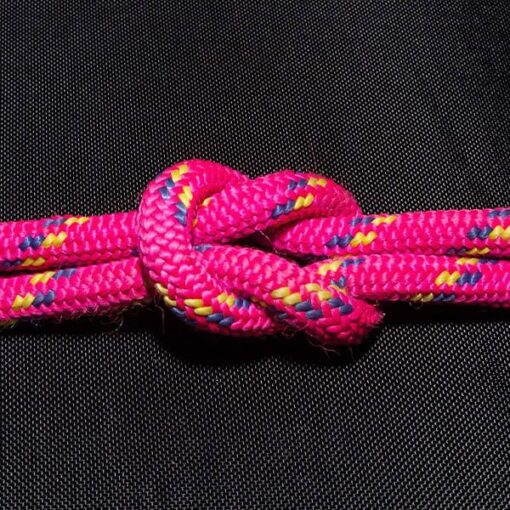RICO’s Q — “My Mother Will Return to Her Homeland When Nicaragua Becomes a Republic Again,” were the words of Carlos Fernando Chamorro, son of former President of Nicaragua, Violeta Barrios de Chamorro, who died last weekend in Costa Rica, at the age of 95.
Carlos Fernando, the youngest son of the first woman elected president by popular vote in the Americas, is a Nicaraguan independent investigative journalist and the founder and editor of Confidencial, a news website covering Nicaragua. In January 2019, Chamorro went into exile in Costa Rica, after the police raid of Confidencial’s offices on 14 December 2018, returning in late November of the same year. Chamorro went into exile again in June 2021 after his siblings were arrested by the Nicaraguan authorities.
“In the early hours of June 14, 2025, the light of our mother, Violeta Barrios de Chamorro, was extinguished, but that same day, hope was reborn in Nicaragua. A hope embodied in the example of her life, in her legacy of integrity and honesty, in her commitment to freedom and democracy, in the lived experience that it is possible to overcome fear in order to express the will of the people, and above all, in her stature as a stateswoman who governed democratically, even in the face of authoritarian threats,” wrote Carlos Fernando on his daily news site.
“This weekend in Nicaragua, some parishioners asked their priests to pray for my mother during Mass or to dedicate a service to her. The response was: ‘It’s better not to. We can’t, because it’s too dangerous’. We’ll include her in the prayer for all the faithful departed, we remember her fondly, and we would love to offer the Mass in her name, but we simply can’t take that risk”.
“And one might ask: why is it dangerous in Nicaragua to offer a prayer or a Mass for Doña Violeta de Chamorro? Just as, in the past, praying for imprisoned bishops and priests has been treated as a punishable crime—why is there censorship against a woman of peace who has never posed a threat to national security? The only possible explanation is the regime’s fear of hope spreading,” explained Carlos Fernando.
In October 2023, Chamorro’s siblings Pedro Joaquín and Cristiana (who was thwarted from running against Daniel Ortega in the 2021 presidential elections) were released from prison and forcibly exiled and Claudia Lucía had to travel to the United States for health reasons.
“We made the decision to move our mother to San José so we could give her here the love and affection we were no longer able to give her in a homeland that had been taken from us,” wrote Carlos Fernando.
“She held on to life, and finally, in January of this year, the four of us were able to reunite in San José, to sing to her, to pray with her, to kiss her, to hold her, and to thank her endlessly for her life.
“And because I had the privilege of being by my mother’s side in Costa Rica, and because we know firsthand the pain of exile and the forced separation of families, we stand in solidarity with all political prisoners who never had the chance to see their mothers and fathers again before they passed.
“We stand in solidarity with all those in exile who haven’t been able to be with their loved ones in their final moments in Nicaragua, and with every family torn apart by the cruelty of the dictators who have turned Nicaragua into a nation of the banished.
“Thank you also to the people and the State of Costa Rica, who welcomed our parents during their first exile in 1957, when they fled the Somoza dynastic dictatorship. Since then, Costa Rica has continued to receive the Chamorro Barrios family, and hundreds of thousands of Nicaraguans, migrants, and refugees, with solidarity through the ’70s, the ’80s, and now into the 21st century.
“The first time I truly felt proud of my mother, back when I was a child and thought she was the best mom in the world, she was a young and beautiful woman who loved playing baseball—and was quite a good hitter, too. My mother also knew how to ride horses to herd cattle, and I always remember her being very close to her children.
“My father was a powerful, earthy force who would arrive home punctually after the evening edition of La Prensa, back when it was an afternoon paper, and my mother could tell whether he was in a good or bad mood by the way he slammed the door,” continued Carlos Fernando.
On the afternoon of April 18, 2018, the day a protest was taking place on Camino de Oriente, Carlos Fernando said he left the Condiencial newsroom and went to visit his mother at her home in Las Palmas, as was his routine.
“We sat in her room and turned on the TV, which was showing images of the protest and the brutal police and paramilitary repression. After watching those images of repression for more than 30 minutes, she simply said, “What is this barbarity? What is this barbarity?”, said Carlos Fernando.
“Seven years later, we say to you: thank you, Mom, for planting the seed of hope with which we will bring change, so that Nicaragua can become a Republic again, rebuilt not with revenge, but with justice.
“Thank you, Mom, thank you Teteta, as your grandchildren and great-grandchildren call you, for your immense example of love and generosity.
“And I promise you that when Nicaragua becomes a Republic again, you will return to rest in peace in your homeland, so that all Nicaraguans can honor your memory and your legacy in a free country,” concluded Carlos Fernando.
Source link
Rico



